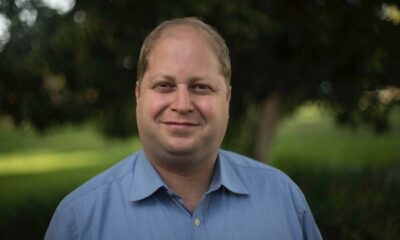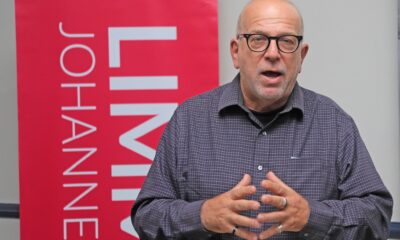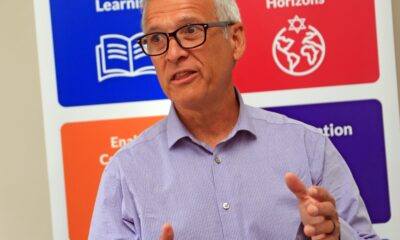
OpEds

A pause for thought: intermezzo of a Jewish traveller
It’s holiday season in Europe, but is it appropriate to travel? Are we allowed to laugh after visiting Auschwitz? Is it permissible to go on holiday after 7 October?
Yes and no.
Of course, it’s allowed. Who should forbid it?
So, it’s good to laugh after visiting Auschwitz? What else is there to do? But sometimes, the laughter can get stuck in your throat.
The same goes for 7 October 2023 – you can go on holiday, but your mind and soul might not take a break. I listen to the news every hour and ask myself, day in and day out, are those poor hostages still alive? Will they be saved? And if they are saved, what will their lives be like afterwards? Will they be able to go back to school? To a festival? To work? Or will their lives be destroyed by what they have been through? Will they be so traumatised that nothing works anymore? Or will they develop resilience like many Shoah survivors I’ve seen? They found a way back to life despite the hell the Nazis put them through. I’ve always admired them so much.
Then my night’s sleep is over, and I drink milk and listen to podcasts that are supposed to calm me down but don’t. Until dawn, I doze in my armchair.
I read articles by clever philosophers about anti-Zionism coupled with antisemitism. I read writings from students and professors at German and American universities, and I’m unsure whether they, themselves, are reading.
I receive hostility in the post and by email, and the line between friend and enemy blurs every day.
A friend of mine, Barbara, moved from Vienna to the Peloponnese, her retirement destination. She calls and says I have to think about other things and visit her. Her mother came to England from Vienna with the Kindertransport, but at the age of 88, returned to Vienna. Barbara was 40 at the time, and moved with her. Now Barbara has left Vienna – too many idiots there, she says.
So, I travel to Athens and continue by bus until I’m greeted by the glistening sea.
There are newspapers here too. I can’t read them, but I see pictures of Palestinian civilians, and it makes my heart ache.
“Yes, you can despair over the massacre perpetrated by Hamas and sympathise with the Palestinians at the same time. The heart is big enough!”
These are my standard phrases in the last few weeks before I set off. They are necessary to counter my increasingly aggressive surroundings. But they also show my helplessness in the face of the situation.
In the meantime, some Jewish friends have left Berlin. They have rented flats in Basel or Zurich. They say they will feel safer in Switzerland, and ask if I want to come with them.
“I don’t want to leave,” I stammer quietly. “You’ll have to leave,” they reply firmly.
This isn’t 1933, but 2024, and I feel like I’m in the wrong film. For the first time, it’s not my grandparents or parents who are being targeted, but me. Because I’m Jewish.
But I’m so much more: a woman, an artist, a mother, a human being! How can I protect my humanity?
Fat, ripe red tomatoes, lots of feta, the sea, and plenty of retsina take my mind off things, even though the war is very, very close.
I drink Nescafé Frio, listen to the bouzouki, and stare at the waves rippling in the wind. What a beautiful world we have!
And then I hear Hebrew at the table right next to me. The next day again in the supermarket, later on at the beach. In the café, I learn that the area is full of Israelis. They are looking for houses to rent or buy; they want to get away as quickly as possible. They want to come here because it’s close to home and a bit like home.
Until now, most people would never leave Israel, with the country meaning more to them than their own safety.
Here, I meet others who can no longer stand the warlike situation. Esthi has heard the tunnels being built near her kibbutz for years. “Lebanon is a single tunnel,” she says. “I heard them drilling day and night.”
Jossi has a construction company and his workers are in Rafah and won’t get to work anytime soon – if they survive at all. “I don’t trust our government,” he says.
I’m in Greece, but it feels like Sheinkin – a trendy street in Tel Aviv. If you imagine the mountains a little redder, it could also be Eilat.
Some leave eretz Yisrael, others leave Berlin. Because if you squint your eyes in Zurich, you might think you’re at Wannsee … maybe.
The sun is blazing, and the fig tree provides me with shade. It’s June, mostly pensioners are here, a sea of white-haired people populate the café.
Barbara smiles. “It’s nice here, isn’t it?” she says.
“My mother came out of Vienna on the very last Kindertransport on 9 November 1938, the Reichskristallnacht. Later, her cousin, who became a journalist, told me that they took only very bright, very healthy children from wealthy, educated families – 10 000 of them from good families. They left orphans behind, even those with a darker skin tone or those who were ill. Those kids were then deported. You didn’t know that, did you?”
No, I didn’t know that.
Flight, expulsion, mass migration everywhere.
“But we’re lucky, we’re here voluntarily. A refuge for some, warmth for others. Some need peace and quiet. Many can no longer deal with their home country. Is there a nicer retirement home?”
Barbara is right. And the Peloponnese isn’t just a wonderful destination when you get old!
I love Greece. The people, the country, the food, but there’s no place where it’s over. Where you forget. And it’s probably right because there’s only one world we live in.
A short interlude, my holidays. Then I travel home and throw myself back into the hullabaloo of Berlin life.
- Adriana Altaras is a German Jewish actor, opera director, and author. She was born in Croatia, grew up in Italy, and later moved to Germany. She is a “Die Zeit Online” columnist. She will be speaking at Limmud in Johannesburg from 23 to 25 August on “The Holocaust in Ukraine, Marc Chagall, and the Soviet Yiddish Theatre”.










